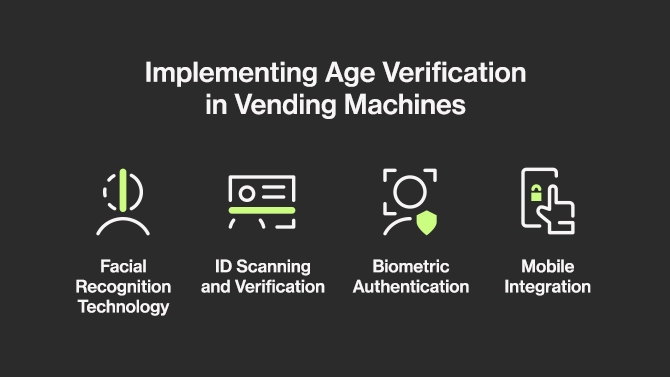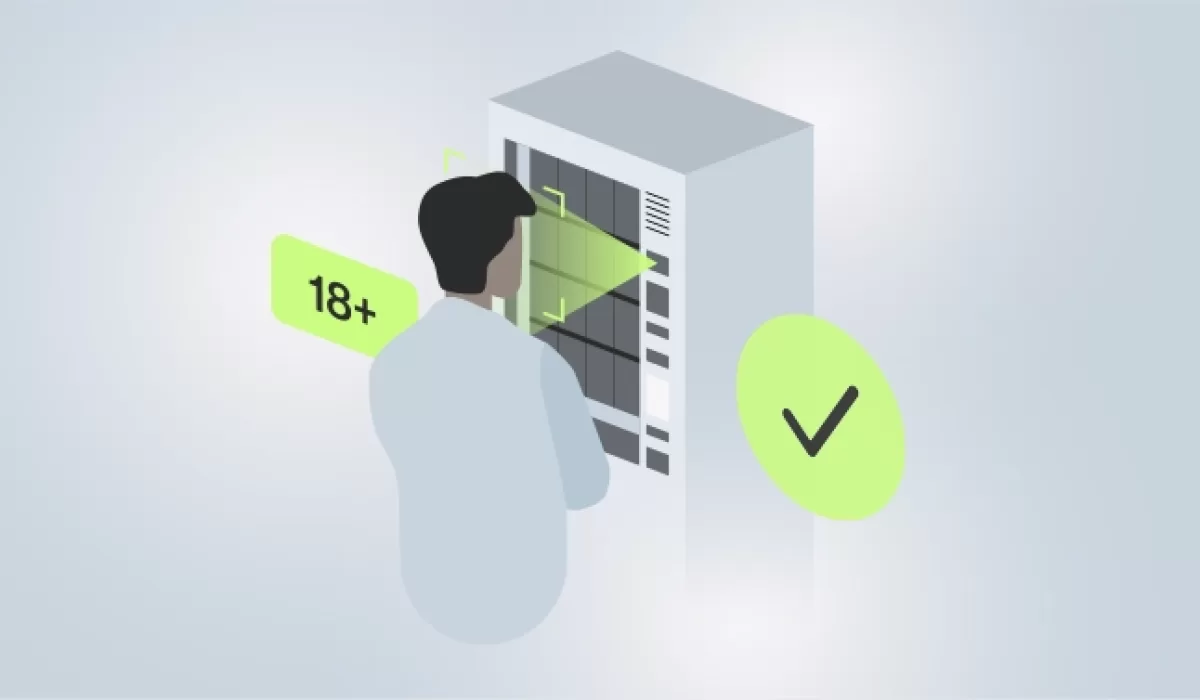Vending machines have advanced far beyond simple dispensers of snacks and beverages. In recent years, the integration of effective age verification solutions into vending machines has become an essential development, particularly for the sale of age-restricted products such as alcohol, tobacco, and lottery tickets. This advancement not only ensures compliance with legal requirements but also streamlines the purchasing process, reducing user friction and enhancing convenience.
The Importance of Age Verification for Restricted Goods
Age verification is crucial when selling products with age restrictions to ensure compliance with legal regulations and protect minors from accessing products that are harmful or inappropriate for their age group. The sale of items such as alcohol, tobacco, and adult entertainment materials is strictly regulated in most countries, with severe penalties for non-compliance. Implementing age verification measures helps businesses avoid legal repercussions and maintain their reputations.
Traditional methods of age verification, such as manual ID checks by store personnel, can be prone to human error, fraud and generally take longer than age or identity verification processes. With vending machines, these risks are heightened, as there is no direct human oversight. Therefore, automated age verification systems are essential to ensure that only eligible customers can purchase restricted goods from vending machines.
Reducing User Friction with Automated Solutions
One of the key benefits of integrating accurate age verification into vending machines is the reduction of user friction during the purchasing process. In a traditional retail setting, customers might experience delays as cashiers manually verify IDs. In contrast, automated vending machines equipped with age verification technology can streamline the process, providing a quick and seamless experience for users.
Modern age verification systems often utilize biometric technologies, such as facial recognition or fingerprint scanning, to verify a user’s age instantly. This not only speeds up transactions but also minimizes the potential for human error or fraudulent ID usage. By eliminating the need for manual checks, vending machines with automated age verification can offer a more efficient and satisfying customer experience.
Implementing Age Verification in Vending Machines

Implementing age verification in vending machines involves several technological components designed to ensure accuracy and security. Here are some common methods:
- Facial Recognition Technology: This technology uses cameras to capture an image of the user’s face, which is then analyzed to estimate their age. Facial recognition systems can be integrated with government databases to verify the user’s age against official records, ensuring compliance with legal requirements.
- ID Scanning and Verification: Vending machines can be equipped with scanners that read and verify government-issued IDs, such as driver’s licenses or passports. These scanners use optical character recognition (OCR) and barcode technology to validate the authenticity and age of the user.
- Biometric Authentication: In addition to facial recognition, biometric authentication can include fingerprint or iris scanning. These methods provide a high level of security and accuracy, ensuring that only eligible users can access restricted products.
- Mobile Integration: Some vending machines leverage mobile apps or digital wallets that store verified age information. Users can authenticate their age through their smartphones, using NFC or QR code technology to complete transactions securely.
Ondato Age Verification
ID-Based Age Verification for Vending Machines
ID-based age verification can be effectively integrated into vending machines to ensure that age-restricted products are sold only to eligible customers. This method requires users to provide their identity documents along with a real-time photo of themselves. The system compares the biometric data from the photo with the information on the ID to verify the user’s age securely. Using Ondato’s system, this process is straightforward, taking seconds, and ensures a high level of security with zero tolerance for fraud. This approach is particularly useful for vending machines selling items like alcohol, tobacco, or adult-rated content.

Age Estimation for Vending Machines
Age estimation tools offer an alternative approach for vending machines, reducing the reliance on identity documents by using biometric data to estimate a user’s age group. With Ondato’s solution, this method can seamlessly onboard the majority of users without requiring additional documents. The system only requests an ID if there is uncertainty about the user’s age. This method is beneficial for vending machines that want to maintain convenience while ensuring compliance with age restrictions, providing a quick and user-friendly experience.
Benefits and Challenges
The integration of age verification technology into vending machines offers several benefits. It enhances compliance with legal regulations, reduces user friction, and provides a secure, efficient purchasing experience.
However, there are challenges to consider, such as the cost of implementing advanced technology and ensuring user privacy and data security. Businesses must invest in robust systems that protect sensitive information and comply with privacy regulations to maintain consumer trust when selling age restricted goods.
Last Thoughts
Age verification vending machine solutions represent a significant advancement in the automated retail sector. By ensuring compliance with legal requirements and reducing user friction, these systems enhance both security and convenience for consumers and businesses alike. As technology continues to evolve, age verification solutions will become increasingly sophisticated, further transforming the landscape of automated retail and improving the user experience for age-restricted product purchases.



